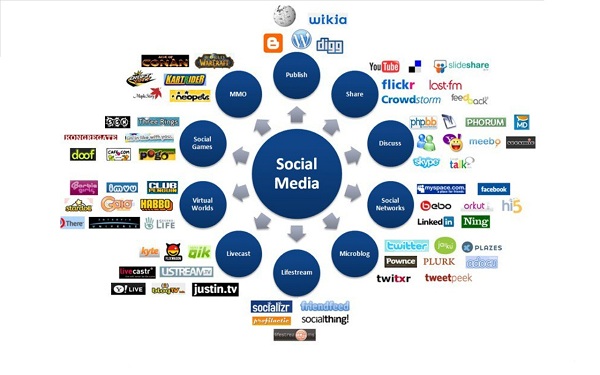 So, once again, we are hearing about the end of blogging.
So, once again, we are hearing about the end of blogging.
This time in comes in the form of a New York Observer article. Among others, the piece quotes Gawker’s Nick Denton whose massive blog empire is undergoing a very non-blog redesign. It essentially argues that the blog is toast because people have other outlets for oversharing, and the cult of personality – in which people read blogs for or about specific people – has been overtaken by social media.
Fair enough. None of this, however, means that the blog is dead. Instead, what it means is that the role of the blog has changed.
Yes, its importance has lessened and will continue to. But far from the “death of blogging”, in 2011 what we’re really seeing is the rebirth of the blog as something new: focused, small, long-form and with a dedicated (if reduced) community.
What Has Changed
The blog started out in two primary forms: the personal web log that recorded personal anecdotes and emotions; and a frequently updated list of links. Both of these early blog forms were built around the idea of connection and social fulfillment.
Of course now, social media seems to do a much better job of performing those roles. Want to whine about your job or celebrate your new baby? Facebook it. Want to share links? Twitter, for many people, is essentially just one giant link blog.
But that’s not all that’s changed. Blogs were for years about personality – about the person behind the blog. Even a link blog was like a list of the things a person liked, which described them as much as anything else. The blog was the person.
But now, one’s social media profile involves so much more than blogs. And blogs are becoming places much more about content than the face behind it.
The best example so far is this: once-influential link blog Fimoculous stopped updating for some time. Then, suddenly, it sprung to life again and seemed like the blog of old. This week, the site’s owner revealed that someone else had – without asking permission – simply started posting there. No-one could tell because it all seemed just as before.
As symbols for the death of a form go, that’s pretty perfect.
What Blogs are Still Good At
So the things that blogs were once best at have been usurped by social media. Fine.
Because in the meantime, blogs have been developing other specialties. Such as: specialist communities; long-form writing; and even a kind of return of the ‘blog ring’ (a collection of blogs that would all write onthe same topic).
The idea that a blog is a good place to share new music with your friends or share links to New York Times pieces about the internet is obviously over.
But blogs are perfect places to explore the music industry or write thought-provoking, deep, long-form posts about the internet.
This is in large part because while most conversation has moved to social media, smaller specialized blogs are still the ones initiating the interesting discussion. For example, Aaron Bady, whose blog zunguzungu has been around for some time, started blogging about Wikileaks – really really well. Soon enough, his work was picked up and highlighted by The Atlantic because it was offering something no-one else was: ongoing, smart analysis of a complicated topic.
It’s not that zunguzungu had a huge readership. It’s that its author was developing thought for a specific audience, and was taking his time about it. It wasn’t about tonnes of hits or links – it was about good ideas, thoroughly explored.
Blogs allow writers to explore ideas in more depth than tweets of Facebook posts because they encourage specialization not of only of content but of readers too. That means that while big communities are on Twitter and Facebook, on blogs you get something like ‘private publics’: small groups of people all into the same thing discussing and debating similar ideas.
The Future For the Blog
If you had to summarize it: social media is about the flood of people and links; it’s about quantity. But while blogs were supposed to be the future of everything, it turns out that are about the inverse: they are small, focused and about quality.
Take a look at the blogs that are dominate discussion: The Awl, Techcrunch, Business Insider, Engadget – they all share things in common: they break news in a very specific category; or they offer insight and ideas and a tone that others don’t.
So the blog is not going to be the dominant format of the future. The ‘reverse chronological order’ of posts will not ‘win the media game’.
What it will do is become like the online version of a speaking series, in which smart, interesting people who are worth listening to will develop their ideas and a small community of readers.
So the future of the blog is not either death or triumph – it’s influence. It’s where new ideas will develop, it’s where small, important communities will form, and it’s where, in the absence of the noise of social media, real thought will grow.




GIPHY App Key not set. Please check settings
4 Comments